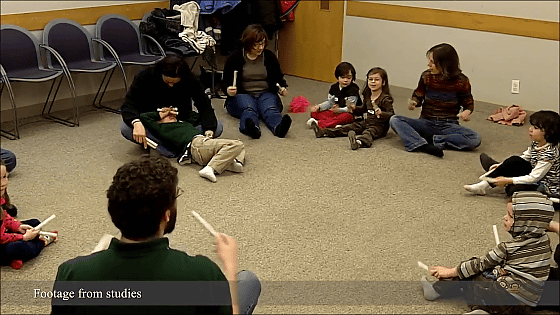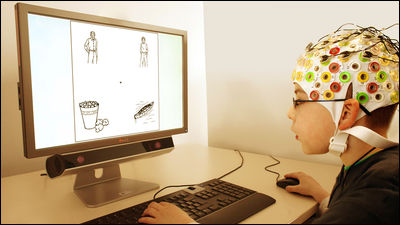Study reveals that children's intelligence does not rise even if Mozart is heard

BySean dreilinger
I think about the idea that good intuition on children's intelligence comes out by letting you listen to music and learning the piano from an early age "Mozart effectThere are statistical results that 8 out of 10 Americans believe this effect. About this "Mozart effect"Harvard University Graduate School of EducationMr. Samuel Meher, a student of the university, conducted research and found out that "listening to music does not affect children's intelligence."
PLOS ONE: Two Randomized Trials Provide No Consistent Evidence for Nonmusical Cognitive Benefits of Brief Preschool Music Enrichment
http://www.plosone.org/article/info%3Adoi%2F10.1371%2Fjournal.pone.0082007
You can check the movie that reports Samuel Meher's research results from the following.
Study Finds No Evidence for Cognitive Benefits of Music Ed - YouTube
Samuel Meher, who studied the influence of children on music education on intelligence. In 1993NatureThe word "Mozart effect" is also used from papers, and about 10 years ago that there is the theory that "music has a good influence on intelligence".

Due to his long experience, Mr. Meggle questioned the question "Do music education strengthen the recognition ability of children?"

According to Meher, 80% of adult Americans think music education has a positive influence on cognitive ability.

So Megiel conducted two experiments. In the first experiment, 29 children aged four years gathered to randomly assign them to music or visual art classes so that the original characteristics (vocabulary · susceptibility · family income etc) will not differ, 45 It takes lessons for six weeks. And after six weeks we will test the four specific areas of children and see the results. At this time I did not use the IQ test to judge the recognition ability of children more accurately.

Four specific field tests are "vocabulary"Numeral identification"Visual analysis"Space graspAbout things concerning. According to the results of the tests of 29 children, the children in the music class showed a rise compared to the others in the "spatial grasp" test using the map, but on the whole there is a marked influence on the recognition ability It did not show the correlation that giving.

In the second experiment, 7 to 8 children who gathered so that characteristics and performances do not differ as in the first experiment are added in addition to "music" and "visual art" classes, and "no class We assigned to three groups.

After 6 weeks of class, when we asked children to take the same four tests, as in the first experiment in any field, 6 weeks music lesson is affecting cognitive ability The result did not appear.

According to the results of this experiment, Mr. Meggle said that as a first conclusion to the influence of "Mozart effect" on intelligence, "It is not a theory based on demonstrated evidence ..."

In the second conclusion, "I do not have an influence on intelligence" asserted. At least, parents who wish to develop their children's intelligence, even if they forcibly receive music education, will not be polished intelligence.

However, as a third conclusion, Mechel said that "music education is essential and externally justified." Making music education is a good tool to learn human emotions and cross-cultures, and it seems that there is no doubt that you will increase your sensitivity.

Related Posts:







